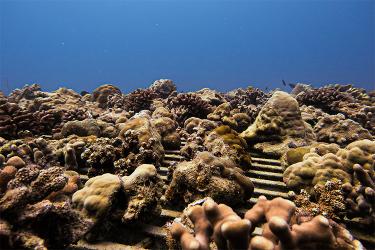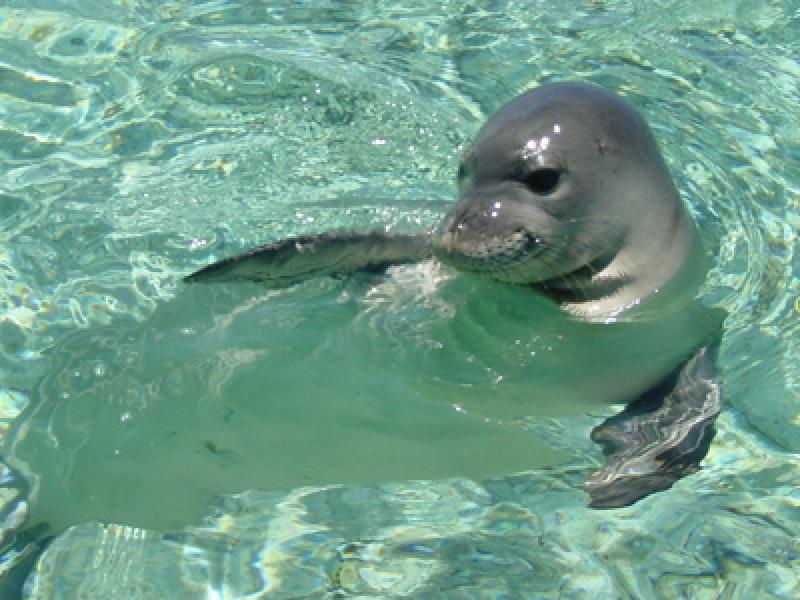SeaWorld San Antonio is the new permanent home for the rescued Cook Inlet beluga whale calf named “Tyonek” currently undergoing rehabilitation at the Alaska SeaLife Center. Once NOAA Fisheries determined Tyonek was “non-releasable” and could not survive in the wild, the agency followed its formal procedure to place him at a permanent care facility in the United States. NOAA Fisheries evaluated each of the facilities applying to receive Tyonek to make sure they could accommodate his social and medical needs, support all necessary transport and integration logistics, and agree to contribute to scientific research on the species to help conservation efforts in the wild. Because Tyonek is a Cook Inlet beluga whale, which is a population listed as endangered under the Endangered Species Act and depleted under the Marine Mammal Protection Act, he will need to be cared for under a permit.

Feeding Tyonek at the Alaska SeaLife Center.
Based on a thorough review of the applications, NOAA Fisheries selected SeaWorld San Antonio as the location best-suited for Tyonek to thrive because they have both adult females and young male calves that will be important for Tyonek’s social development. Tyonek was less than a month old when he stranded, is nutritionally and socially dependent, and lacks both survival and socialization skills needed to be successful on his own in the wild. It is likely his mother either abandoned him or died, so reuniting him with her was not an option. A permanent place at a marine mammal facility provides Tyonek with a second chance at survival and social development with other belugas. NOAA Fisheries will continue to work with Alaska SeaLife Center and SeaWorld San Antonio to coordinate the safe and speedy transport of Tyonek to his new home.
"We want to thank the Alaska SeaLife Center and our partners in the marine mammal conservation community for the dedicated care that helped rehabilitate Tyonek,” said Assistant Administrator for NOAA Fisheries Chris Oliver. “The permanent placement of Tyonek at SeaWorld San Antonio—and the scientific knowledge gained by learning from him for years to come—will benefit Cook Inlet beluga research and recovery.”
By monitoring Tyonek as he grows from a calf to an adult animal, we can learn important information about his physical and behavioral development, including his hearing, vocalizations, social interactions, and overall body condition. This knowledge will help inform the protection and recovery of wild populations of belugas, specifically Cook Inlet beluga whales, which are one of eight endangered species that NOAA Fisheries identified as part of the nationwide Species in the Spotlight initiative to stabilize population declines and focus resources on marine species that are most at risk of extinction.



